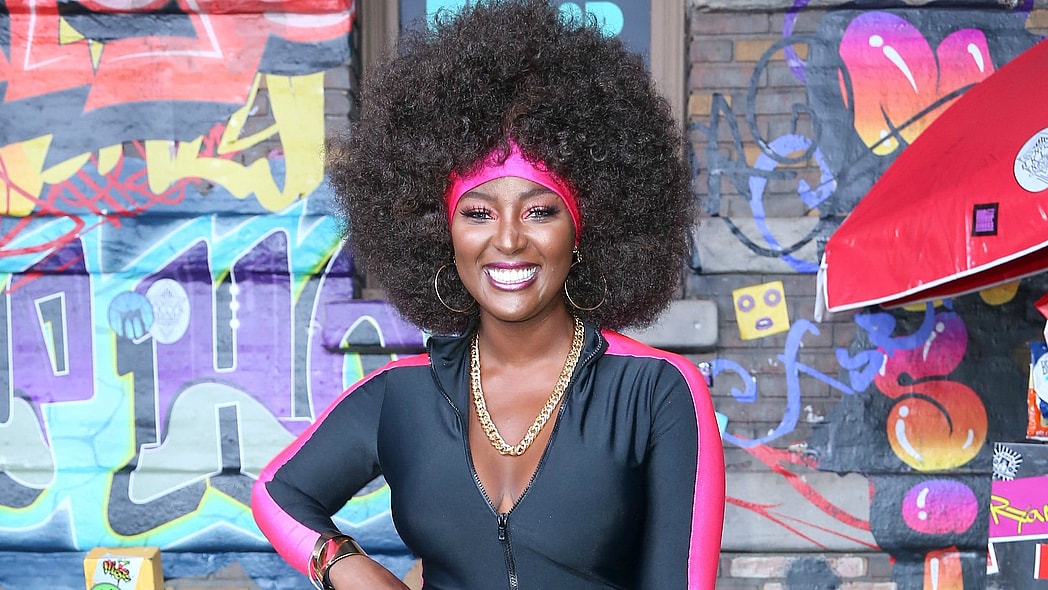Growing up, I’d secretly wish teachers would pass over my last name.
“Martinez?”
Just the mention of it raised too many questions and attention.
Saying my last name out loud, only meant I’d have to explain yet again how I was a Black Latina, whose parents immigrated from Honduras.
Yes it’s possible! A Black girl with a “Spanish” surname.
And no- I didn’t speak Spanish (not all Latinos do).
My parents grew up speaking Garifuna, a language distinct to the Garinagu, descendants of shipwrecked slave ships that landed off the coast of St. Vincent. Through migration, my family ended up in Honduras.
Our culture is very Black. The food, language and music can all be traced back to West Africa. And I’m proud of it.
While at times I tried to share the bits and pieces of the culture that I knew growing up, it never seemed to satisfy other people. The exchanges often led to responses that alluded to me not really being Latina or Black enough.
So, for many Afro-Latinxs, the story of Amara La Negra, breakout star of VH1’s Love & Hip-Hop: Miami is all too familiar.
The melanin-poppin, afro-wearing, curvaceous music artist proudly reps her Afro-LatinX identity on the show. But just like my own experiences growing up, everywhere she turns she gets questions.
On a recent episode of Love & Hip-Hop: Miami, Amara’s fellow cast member and producer Hollywood, suggested Amara be “a little more Beyoncé, a little less Macy Gray.” He also referred to her as “Nutella Queen,” and poked fun at the term “Afro-Latina,” inquiring whether or not she uses it because she’s African or in reference to her afro.
Talk about ignorant. The term “Afro-Latina/o/x” refers to people of African descent in Mexico, Central and South America, and the Spanish-speaking Caribbean, as well as those of African descent in the U.S. whose origins are in Latin America and the Caribbean. It has nothing to do with hair.
Despite the disrespect, the 27-year-old Dominican singer responded gracefully:
“In case you hadn’t noticed, I am Black,” she said, eventually walking out altogether.
I wasn’t surprised to see a light-skinned Latino impose his opinions and enforce Eurocentric beauty ideals on a darker-skinned, afro-textured hair Latina. But I didn’t expect to see people pick apart Amara’s physical features and identity so viciously on social media in the aftermath.
Amara La Negra has been accused of darkening her skin via melanin pills and excessive tanning, wearing colored contacts and wigs to achieve her ‘fro. Since the show debuted, Amara has had to pull up receipts on her Instagram page, showing childhood photos and videos that prove she hasn’t altered her look.
https://www.instagram.com/p/Bdh56yZAaHq/
That’s the part that hits home. There’s always a hyper-critical lens held to those who choose to use terms like Afro-Latinx or Black Latinx. While Amara doesn’t have to prove she’s anything to anyone, for many Afro-descendants from Latin America and the Caribbean it’s almost expected.
When images of Sammy Sosa’s lighter-complexion turned up, comments around anti-Blackness within the Latin American community were at an all-time high. But when a dark-skinned Afro-Latina proudly embraces her Blackness, she’s dismissed and picked apart and told she’s not Latina enough and definitely not Black. How can we win?
I applaud Amara for introducing Afro-Latinidad to a newer audience through the Love & Hip Hop franchise, and for representing darker-skinned Latinas by simply being herself. I hope this opens the door for deeper conversations beyond representation and visibility, tackling issues like violence, employment and other forms of inequality and injustice toward Black Latinas.
The conversations surrounding Afro-Latinidad aren’t new and have been happening for decades through organizations like Proyecto Afrolatin@ /The Afrolatin@ Project and the Caribbean Cultural Center African Diaspora Institute (CCCADI), among others.
But now that it has the attention of a new audience, it’s time to leverage the conversation for the greater good.
We should be proud to say who we are without fear of interrogation. And when we say we’re black and proud- the world should know we mean it.
Janel Martinez is a multimedia journalist and entrepreneur. You can follow her on Twitter @janelmwrites and Instagram @janelm.


